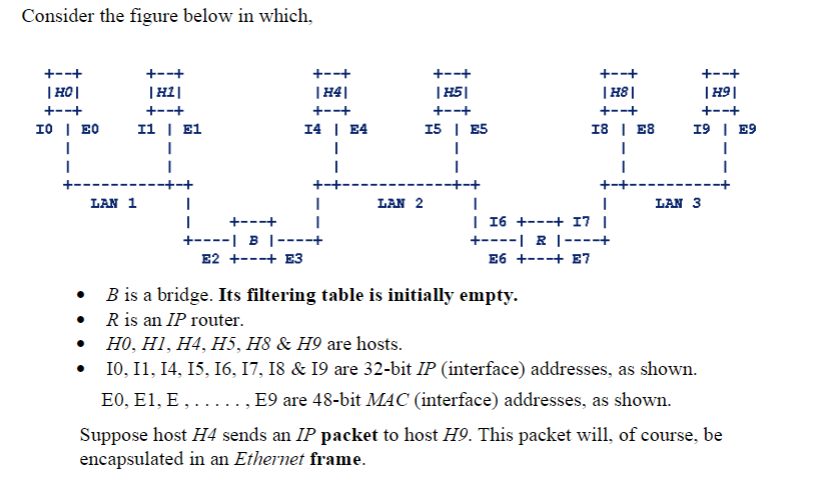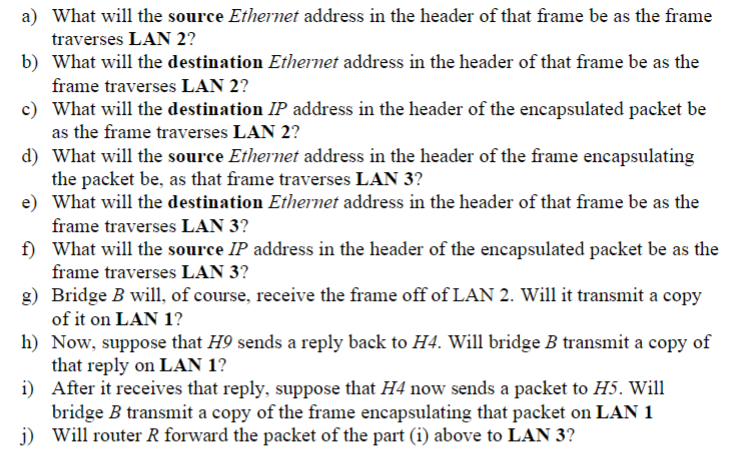Question
Assume that you have been assigned the 200.35.1.0/24 network block. Specify the subnets of 200.35.1.0/24 in binary format and dotted decimal notation. Define an extended
Assume that you have been assigned the 200.35.1.0/24 network block. Specify the subnets of 200.35.1.0/24 in binary format and dotted decimal notation. Define an extended network prefix that allows the creation of 6 subnets and 20 hosts on each subnet. (just write the network mask in CIDR or Decimal format) For the answer of (2) above, what is the maximum number of hosts that can be assigned to each subnet? For the answer of (2) above, what is the maximum number of subnets that can be defined? List range of host addresses that can be assigned to the first subnet (with the smallest subnet prefix) that you derived from sub-question 4. What is the broadcast address for subnet 200.35.1.192/27? Suppose your company uses CIDR and has the IP address range from 200.35.56.0/24 to 200.35.113.0/24. Aggregate (combine )this set of (58) IP /24 network addresses to the highest degree possible. Be careful so that it does not overlap with other ip address not in the range.



Step by Step Solution
There are 3 Steps involved in it
Step: 1

Get Instant Access to Expert-Tailored Solutions
See step-by-step solutions with expert insights and AI powered tools for academic success
Step: 2

Step: 3

Ace Your Homework with AI
Get the answers you need in no time with our AI-driven, step-by-step assistance
Get Started


